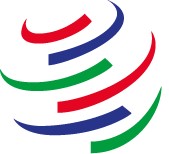In an ominous, smoke-filled room, the black wings of a hundred crows scatter to the rafters at the sound of a fist pounding at the head of an ancient table. A menacing voice demands to know how the poor soul cowering at the other end has failed to submit notifications on Current Total Aggregate Measurement of Support for over a decade. Utter silence pervades the room except for the subdued voice of a distant translator speaking into a headset. The cowering soul, finally comprehending the question, hurriedly vows that notifications will cover the table before the rooster awakens the dawn.
If only.
Notifications play a vital role in the workings of the World Trade Organization (WTO). The WTO is supposed to be much more than a court for litigation; it is also a forum for negotiation and monitoring how its members comply with the rules to which they agreed. Notifications feed information into the system on a variety of topics, from quota administration to trade-related phytosanitary measures to agricultural domestic support, among many others. Centralizing this information along with active discussions between officials helps facilitate negotiations and sheds light on problems in the marketplace.
In reality, many countries do not submit notifications or delay for so long that they are practically worthless by the time other countries can review them. Fully one-third of WTO members had outstanding notifications on agriculture that were at least two years overdue in 2017, and some much older than that. For example, Turkey – a major wheat producer – submitted domestic support (or subsidy) notifications in July 2017 covering the three years from 2002 to 2004.
The notification system works well enough when countries are abiding by their WTO commitments and are reasonably committed to the system, but it has become clear that many countries need some extra motivation, particularly those that are sources of major distortions in agricultural markets. That is why we are glad that the United States government has taken steps to highlight this issue through a transparency proposal it made in advance of the latest World Trade Organization ministerial meeting in Buenos Aires.
The U.S. proposal would provide for a proportionate response to failures by countries to fulfill basic WTO transparency and notification requirements. After a certain period when a country is delinquent in its notifications and uncooperative in providing information, it will lose basic privileges and access to WTO materials and activities. If it remains delinquent for no more than three years beyond a notification deadline, the WTO will designate the country as an “Inactive Member” of the WTO until its notifications are current.
This approach seems reasonable and logical – if a country is failing to meet basic obligations, it should lose benefits of membership. Today there are no consequences for noncompliance with transparency commitments except the consternation of frustrated colleagues.
Maybe it’s time to give that soul a reason to cower.
By Ben Conner, USW Vice President of Policy


